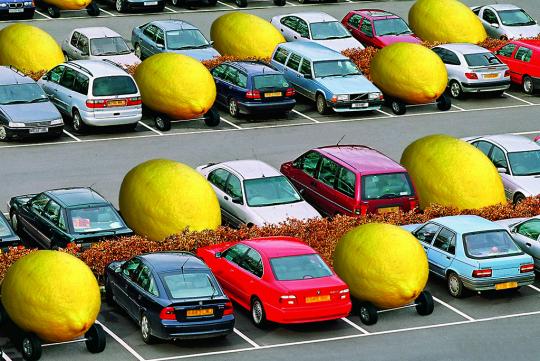Make Lemonade
Make Lemonade

 The purpose of the Lemon Law, implemented in Singapore in September 2012, is to protect consumers from defective goods – products that do not meet the performance, safety and quality standards specified in the sales contract at the time of purchase. For car buyers, if what they purchase turns out to be a “lemon”, they now have formal legal recourse against their dealers. Here are the most pertinent questions-and answers regarding the Lemon Law:
The purpose of the Lemon Law, implemented in Singapore in September 2012, is to protect consumers from defective goods – products that do not meet the performance, safety and quality standards specified in the sales contract at the time of purchase. For car buyers, if what they purchase turns out to be a “lemon”, they now have formal legal recourse against their dealers. Here are the most pertinent questions-and answers regarding the Lemon Law:
Warranties are compulsory now, but didn’t new cars always have these?
Car dealers have always provided warranties, but their coverage was never legally mandated until the Lemon Law was enacted. This new law states that if a previously undocumented defect is found in a new car within six months of its registration date, that fault will be deemed to have existed at the time of delivery.
Are car dealers obliged to solve such “lemon” problems? When a fault is reported within six months,
The dealer is legally bound to resolve the issue and carry out the necessary repairs. But if the dealer cannot complete the repairs within a reasonable time period and/or causes great inconvenience to the customer, the latter is then entitled to ask for a full or partial refund.
If the buyer asks the dealer to substitute the vehicle, the replacement car doesn’t have to be new – the dealer will consider the mileage plus wear-and-tear on the faulty vehicle, and can offer to replace it with one of a similar age and mileage.
What if a vehicular defect is only discovered after six months?
The buyer is still entitled to seek recourse, but the onus is on him to prove that the fault existed when he took delivery of the vehicle.
Is one-for-one replacement mandatory under the Lemon Law?
Replacements are only possible if the fault in question, such as an electrical problem that led to a fire, results in the total loss of the vehicle. Even in this case, a replacement isn’t compulsory. The dealer can offer to compensate the buyer instead.
 Are used cars also covered by the Lemon Law?
Are used cars also covered by the Lemon Law?
Yes, the Lemon Law covers pre-owned vehicles, too. Buyers, however, must remember that used cars cannot perform as well as new ones. After the Lemon Law came into effect, members of the Singapore Vehicle Traders Association (SVTA) came together and devised a pre purchase checklist to protect themselves and their customers.
This checklist, called the Standard Vehicle Assessment Report, requires SVTA members to perform 54 visual, road-test and equipment checks together with a customer prior to any sale. It is hoped that this process will ensure a transparent transaction, so that buyers make a purchase “with their eyes open”.
What is considered “reasonable performance” for a pre-owned car?
This is still a grey area, but generally speaking, it depends on the make, model and mileage of the car in question. According to a lawyer who spoke to Torque if a buyer sued a dealer and demanded a replacement because the used car he bought did not deliver “reasonable performance”, only a court ruling would be able to offer a definitive answer as to how “bad” a car has to be before a replacement must be given.
Can agents still sell cars “as is”?
Under the new law, agents are not allowed to use such disclaimers to prevent buyers from seeking recourse if the vehicle indeed turns out to be a lemon. Conditions such as “no refunds under any circumstances” are also illegal. Instead, agents must inform interested buyers about any defects so he or she will know the vehicle’s limitations before they decide to buy it.
Does the Lemon Law apply to owners who sell their cars to dealers?
The law covers business-to-consumer, not consumer-to-business transactions. However, under the existing Sale of Goods Act, a dealer can still sue a customer for selling him a vehicle that does not comply with the terms that they agreed upon in the sales contract.
This article was written by Jeremy Chua, writer for Torque
1copy.thumb.jpg.8d9fb898c1bdc8ee48be52e4aa2ad81b.jpg)



0 Comments
Recommended Comments
There are no comments to display.
Create an account or sign in to comment
You need to be a member in order to leave a comment
Create an account
Sign up for a new account in our community. It's easy!
Register a new accountSign in
Already have an account? Sign in here.
Sign In Now